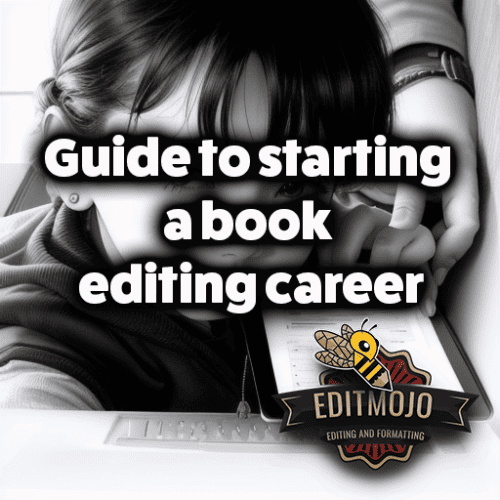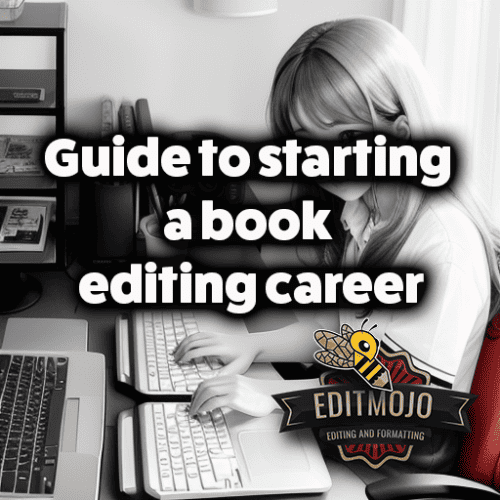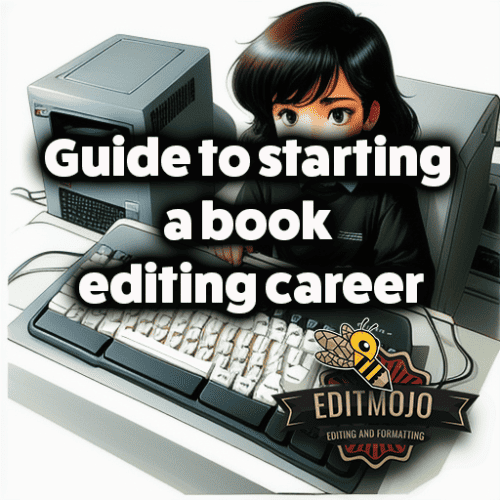Guide to starting a book editing career
Guide to starting a book editing career. When you flip open the crisp pages of a novel, or skim through an insightful non-fiction book, do you find yourself scrutinizing the text, spotting the misplaced comma or pondering over a smoother transition for a sentence? If so, you might be perfectly poised for a rewarding and intellectually stimulating career in book editing.
Key Takeaway Table
| Section | Key Takeaway |
|---|---|
| Understanding the Role | Book editors serve as a crucial bridge between authors, publishers, and readers. They work in various capacities such as developmental editors, copy editors, and proofreaders. |
| The Publishing Industry | Editors should understand the publishing industry, including traditional and self-publishing, to better shape manuscripts for their target audience. |
| Skills Required | Hard skills like language proficiency and soft skills like patience, empathy, and communication are all essential to becoming a successful book editor. Creativity and a love for literature are also key ingredients. |
| Education and Training | Degrees in English, Literature, or Journalism can provide a good foundation, but practical experience through internships or freelance work is vital. |
| Building a Portfolio | Building a strong portfolio is crucial to showcasing your editing skills. This can be achieved through freelance work or internships. |
| Navigating the Job Market | Job hunting requires a compelling CV and cover letter tailored to editing roles. Platforms like Indeed, Glassdoor, and LinkedIn offer job opportunities in the publishing industry. |
| Freelance Book Editing | Freelance editing offers flexibility and the freedom to choose projects. Platforms like Reedsy can help find freelance work. |
| Keeping Up with Industry Trends | Staying updated with industry trends and continuous learning is vital in the dynamic literary world. |
| Insider Tips | Reading widely and often is essential for an editor. |
| The Future of Book Editing | The future of book editing is intertwined with technology, including the growing use of AI and machine learning in the industry. |
Understanding the Role of a Book Editor
Before diving headfirst into the literary world, it’s crucial to grasp what being a book editor truly entails. Book editors serve as the unsung heroes behind published works. They are the second pair of eyes, ensuring the words that reach readers are polished and pristine. Not just grammar guardians, editors shape the narrative, influence the storytelling and can help determine the success of a manuscript.
There are several types of editors, each with a distinct role. Developmental editors take a bird’s eye view of the work, focusing on the bigger picture—structure, style, content flow and coherence. Copy editors, on the other hand, dive into the nitty-gritty—grammar, punctuation, factual accuracy, and consistency. Lastly, proofreaders act as the final line of defense, catching errors or inconsistencies that slipped past previous edits. It’s akin to sculpting; the developmental editor shapes the rough stone, the copy editor refines it, and the proofreader polishes the final details.
Intriguingly, an editor’s role is a nexus between authors, publishers, and readers, ensuring each party’s expectations are met in the final product.
The Intricacies of the Book Publishing Industry
To be an effective editor, understanding the publishing industry’s intricacies is vital. Traditional publishing—where agents pitch books to publishers—is still thriving. But self-publishing, powered by the digital revolution, is becoming increasingly popular. As an editor, navigating this changing landscape could become a part of your role.

Skills Required for a Successful Book Editing Career
So, what skills does one need in their arsenal to excel as a book editor? The answer isn’t black and white. You need a blend of hard and soft skills, a dash of creativity, and a good dose of literary passion.
Of course, proficiency in language is essential. An editor must be a linguistic chameleon, able to switch between Chicago, MLA, or APA style guides as smoothly as a skilled driver shifts gears. But the role demands more. Patience, empathy, and excellent communication skills are just as crucial. You’re not just dealing with texts; you’re dealing with their creators, authors who may need guidance, reassurance, or critique delivered in a supportive manner.
Finally, don’t underestimate the power of a literary mind. A successful editor needs to be a voracious reader, well-versed in different genres, styles, and trends. They can then use this knowledge to help shape the manuscripts they work on.
Education and Training
While there isn’t a fixed academic pathway to becoming a book editor, certain degrees can provide a solid foundation. English, Literature, or Journalism are all great starting points. Yet, the real learning often happens outside the classroom. Internships at publishing houses, editorial roles in college newspapers, or courses from esteemed platforms like Coursera or [edX](https://www.edx.org/course
?search_query=editing) can provide hands-on editing experience.
Building a Portfolio and Gaining Experience
In the publishing world, a robust portfolio is your golden ticket. It showcases your editing prowess and your ability to transform a rough manuscript into a literary masterpiece. So how do you build one? Start with freelance work. Websites like Upwork and Fiverr are perfect platforms to find initial editing gigs.
Remember, networking can open doors for opportunities that may not be advertised. Attend literary events, join online forums, or become a member of editing associations like the Editorial Freelancers Association.

Navigating the Job Market
Job hunting as a book editor can be a unique challenge. But don’t fret; with a well-crafted CV, a compelling cover letter, and a knack for interviews, you’ll find your way. Websites like Indeed, Glassdoor, and LinkedIn regularly list job openings in the publishing industry.
Exploring Freelance Book Editing
If you relish the idea of being your own boss, freelance book editing might be your calling. The freedom to choose your projects, work at your own pace, and the potential for higher income can be enticing. Platforms like Reedsy are excellent places to find freelance editing work.
Keeping Up with Industry Trends and Continuous Learning
The literary world is dynamic, and as an editor, it’s vital to stay updated. Subscribe to editing blogs like American Editor or join professional organizations such as the American Society of Journalists and Authors to keep your finger on the industry’s pulse.
Insider Tips from Successful Book Editors
One of the best ways to understand any career is to learn from those already excelling in it. “Reading is to the mind what exercise is to the body,” says Richard Steele. Editors need to be avid readers. Get into the habit of reading widely and often.
The Future of Book Editing
With digital transformations shaping every industry, book editing is no exception. AI and machine learning are slowly permeating the editing world, with tools like Grammarly and ProWritingAid assisting editors in their work.
Conclusion (Guide to starting a book editing career)
Starting a career in book editing might seem daunting, but remember, every expert was once a beginner. With passion, dedication, and a love for the written word, you could be the next unsung hero behind a bestseller.

Additional Resources
Check out these books for more insights: “The Copyeditor’s Handbook” by Amy Einsohn and “Between You & Me: Confessions of a Comma Queen” by Mary Norris. You can also explore online courses on websites like Udemy and MasterClass.
Top Five Questions and Answers
Q: What skills are essential for a book editor?
- A: A book editor needs a mix of hard skills, including language proficiency and familiarity with style guides, and soft skills such as patience, empathy, and excellent communication. A love for reading and a creative mindset are also vital.
Q: How can I gain experience in book editing?
- A: Gaining experience can be achieved through internships at publishing houses, freelance editing work, or even editing for a school or local newspaper. These experiences can help build your portfolio.
Q: Where can I find job opportunities in book editing?
- A: Job opportunities can be found on job listing websites like Indeed, Glassdoor, and LinkedIn. Networking at literary events or joining professional editing associations can also lead to job opportunities.
Q: What does the future hold for book editing?
- A: The future of book editing is increasingly digital, with tools powered by AI and machine learning playing a larger role in the editing process. However, the need for a human touch in editing, especially in understanding narrative and stylistic nuances, remains paramount.
Q: Can I be a freelance book editor?
- A: Yes, you can choose to be a freelance book editor. This offers the flexibility to choose your projects and work at your own pace. You can find freelance editing work on platforms like Reedsy or Upwork.
